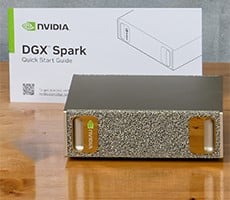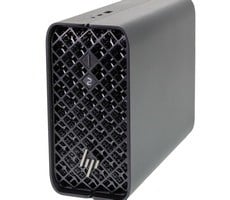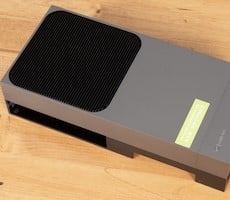Origin PC Millennium Gaming Desktop Review: Custom Chassis, Blinding Speed
This is what an unsullied desktop looks like. Save for a web-linked Readme file, there is no clutter on the desktop, and no bloat to bog down system performance.
Origin PC also configures its Millennium with a custom wallpaper, one that is now familiar to us after having reviewed some of the boutique builder's other systems, such as the EON15-S gaming laptop and Chronos small form factor machine.
BIOS And Overclocking
Since Origin PC uses off-the-shelf components—in this case, an ASUS ROG Maximum X Hero motherboard—you have access to the full UEFI BIOS. Above is a screenshot of the overclocked settings. Taking advantage of the unlocked multiplier, Origin PC pushed the CPU clockspeed to 5GHZ on all six cores.
Origin PC also chose to overclock the EVGA GeForce GTX 1080 Ti graphics cards in our review unit. It's a $50 service, versus $75 for the professional CPU overclocking. The benefit of having Origin PC handle overclocking chores is that it "thoroughly" tests for stability while keeping an eye on temperatures. It also guarantees the overclocked settings and backs the parts with its warranty.
Exact settings will vary by hardware. In our case, Origin PC pushed the GPU's base clockspeed to 1,601MHz, up from 1,481MHz, and boost clock to 1,702MHz, up from 1,582MHz. It also nudged the memory clock up a bit, from 1,376MHz to 1,414MHz.
In our own testing, the overclocks proved stable. We didn't run into any quirky behavior, such as crashing to the desktop, system freezes, or random reboots.
How does that translates into performance? Let's have a look...









